1. Saying “Bless You” After a Sneeze

The habit of saying “bless you” dates back centuries, with roots in European superstition and the plague era, but in America, it became more about politeness than protection. People didn’t want to seem rude or indifferent if they ignored a sneeze. It became a quick way to show attentiveness in public and signal that you were considerate. Over time, it stopped being about health and turned into an expected display of courtesy.
If you don’t say it, people sometimes notice immediately, almost as if you’ve committed a small social crime. The gesture is empty of its original meaning but heavy with social pressure. It’s one of those automatic responses people give to prove they’re well-mannered. Really, it’s more about appearances than concern for the person sneezing.
2. Writing Thank-You Notes
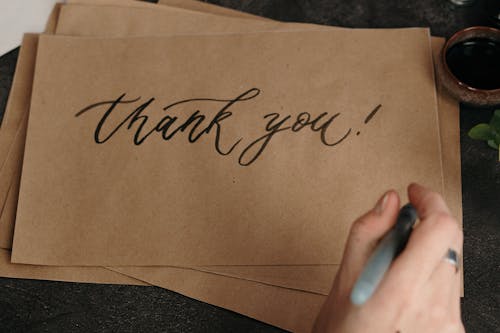
Handwritten thank-you notes became popular in America during the 19th century, when letter-writing was a sign of refinement. Families, especially among the upper classes, emphasized them as proof of good upbringing. It wasn’t just about gratitude—it was about showing that you were polite enough to put effort into appearances. A hastily scribbled card was considered better than saying nothing at all.
Today, the tradition still lingers, even though texts and emails are more practical. People who send them are often seen as more thoughtful, even if the note itself is generic. It’s a way of signaling that you respect social conventions. In reality, the note has always been as much for the sender’s image as for the recipient’s appreciation.
3. Not Talking About Money

Americans are famously uncomfortable discussing salaries, inheritances, or even the price of major purchases. This comes from 19th- and early 20th-century etiquette guides that framed money talk as vulgar. The idea was that discretion made you look more refined, regardless of your actual financial situation. Avoiding the topic became a tool for looking “above” financial concerns.
Even today, avoiding money talk isn’t really about politeness—it’s about appearances. By dodging the topic, people can keep social hierarchies a little blurry. It lets someone act wealthy without having to prove it. The silence itself becomes a performance of class.
4. Using “Please” and “Thank You” Excessively
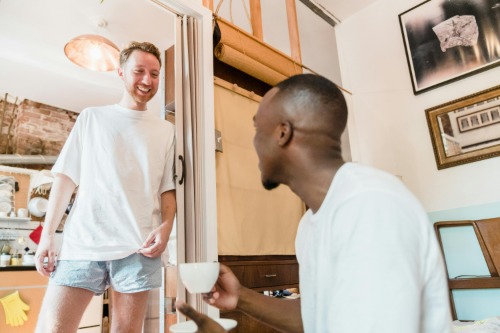
While most cultures have some form of politeness words, Americans have a reputation for sprinkling “please” and “thank you” into even the smallest exchanges. This habit grew out of early etiquette rules meant to mark civility in a young, socially mobile nation. Saying it constantly didn’t just show gratitude—it showed you had been “raised right.” Parents passed it down as proof of refinement, not just kindness.
Now it’s almost a script: baristas, servers, cashiers, and strangers all get the same polite phrases, whether or not they’re heartfelt. The habit makes everyone appear well-mannered, even when the words are automatic. If you forget to say them, people might question your character more than your gratitude. It’s politeness as branding.
5. Small Talk About the Weather
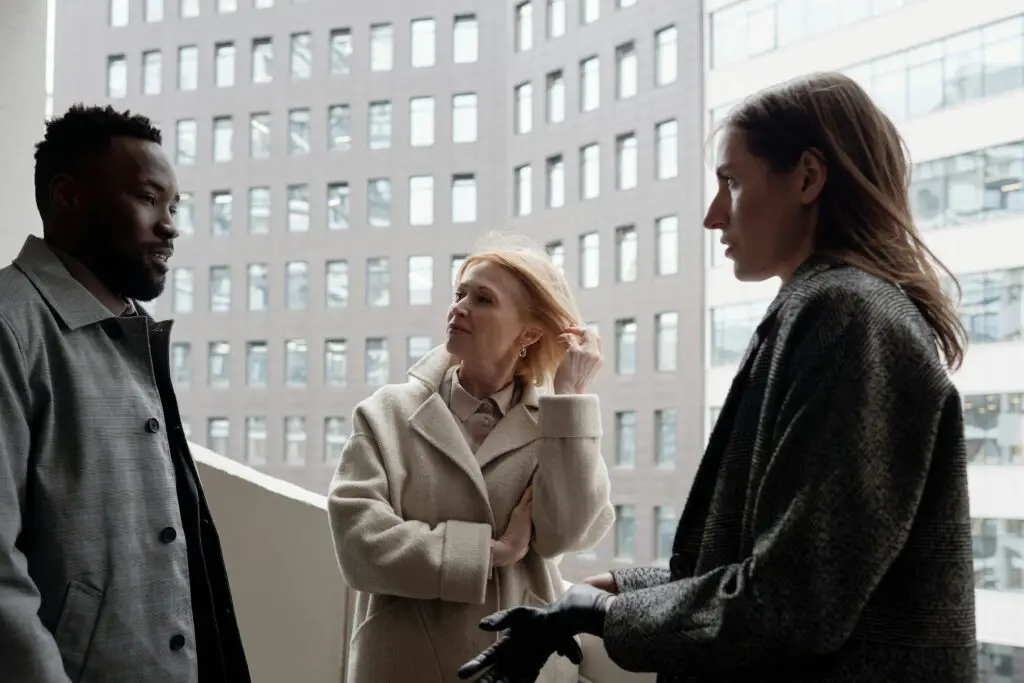
The American love for casual weather chat is more about etiquette than meteorology. In the 19th century, etiquette writers encouraged “safe” topics that wouldn’t risk offending anyone. Weather became the ultimate filler—it was neutral, uncontroversial, and showed you cared enough to engage politely. It’s a performance of friendliness without real vulnerability.
To this day, weather talk fills awkward silences and greases social interactions. It’s rarely about actual curiosity, but more about looking approachable. People judge you less for being boring than for being rude or distant. So Americans lean on it as a ritualized courtesy.
6. Holding the Door Open
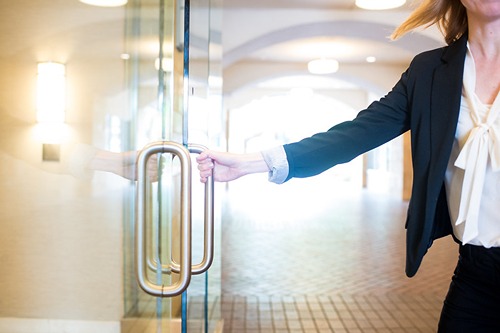
Door-holding is framed as chivalrous or courteous, but in America, it became an expected performance of manners by the early 20th century. It wasn’t just about helping—it was about proving you were considerate. Doing it, especially for women or elders, was a way to show refinement and upbringing. People noticed if you didn’t.
Now it’s less about practicality—most people can open a door themselves—and more about optics. It signals attentiveness in public spaces, even with strangers. Refusing to hold a door often feels like a social statement. The gesture is small, but the impression it creates is large.
7. Not Chewing with Your Mouth Open

This rule traces back to European court etiquette, where noisy or open chewing was seen as animal-like. In America, it took on added weight as proof of middle-class refinement. Families drilled it into children as a sign of self-control and civility. It wasn’t about eating—it was about being seen as polished.
Even today, breaking this rule feels less like bad dining mechanics and more like bad character. People instantly judge open-mouth chewers as uncultured or careless. It’s one of the fastest ways to seem rude without saying a word. The rule exists not for hygiene, but for appearances.
8. Using Coasters Under Drinks
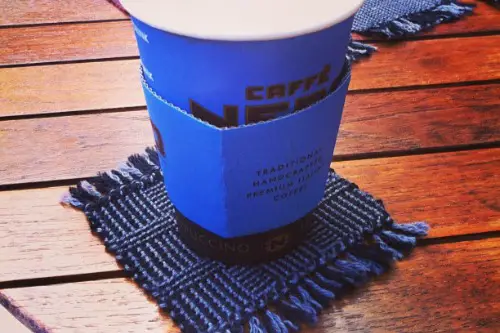
Coasters became common in American homes during the mid-20th century, marketed heavily as a way to protect furniture. But the push wasn’t only about practicality—it was about looking like you cared for your possessions. A neat, mark-free table became a sign of respectability. Inviting guests and not using coasters made you look sloppy.
Today, coasters are still less about rings on wood and more about being a “good host.” Guests often feel guilty if they don’t use one, even when the table is cheap or already scratched. It’s a tiny, ritualized way of showing manners in domestic spaces. The coaster is really a prop for appearances.
9. Dressing Up for Church
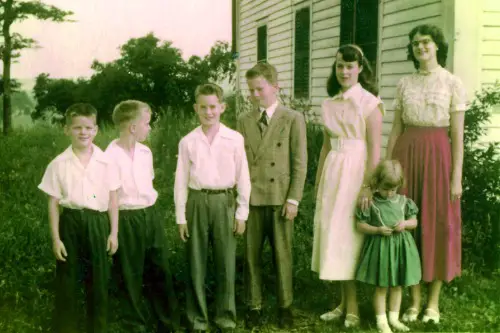
In America, “Sunday best” was less about worship and more about signaling respectability. Churchgoing was once a central community event, so clothing choices were about social display. Wearing your finest outfit showed you were serious, pious, and respectable. It mattered as much to neighbors as to God.
Even today, some congregations maintain strict expectations around dress. People who show up too casually are judged not just spiritually but socially. The rule reinforces appearances more than devotion. Dressing up is as much about fitting in as it is about faith.
10. Using Euphemisms in Polite Company

Americans developed a habit of swapping direct words for softer ones to appear refined. “Restroom” instead of “toilet,” “passed away” instead of “died,” and “expecting” instead of “pregnant” all came from etiquette standards that prized delicacy. Saying the “wrong” word risked making you look crude. Euphemisms smoothed over uncomfortable truths to preserve appearances.
This habit continues even when everyone knows the meaning. People feel more polite, even if the phrasing is less clear. It’s not about accuracy—it’s about optics. The word choice becomes a social costume.
11. Waiting to Eat Until Everyone is Served

This rule started as a way to show consideration at shared tables, especially in wealthier households. Not diving in immediately made you look restrained and gracious. It was less about practicality—food didn’t stay warm forever—and more about self-presentation. Patience was linked to good breeding.
Now, the ritual persists even in casual settings. People will often sit awkwardly in front of hot food until the last plate arrives. The gesture shows that you’re “polite,” even if everyone is secretly hungry. Again, it’s more about appearances than actual comfort.
12. Saying “Excuse Me” for Everything

In America, “excuse me” became a catch-all phrase for navigating public life. It’s used for sneezing, passing through crowds, interrupting, or even just getting attention. Originally, it was about softening intrusions and making them seem socially acceptable. The phrase became a buffer for behavior that might otherwise look rude.
Now, people often overuse it, apologizing for the smallest movements. It’s less about genuine remorse and more about performing politeness. The words signal that you’re socially aware, even if the action was harmless. Like so many American manners, it’s an appearance ritual disguised as courtesy.
This post 12 American Manners That Were Invented Just to Keep Up Appearances was first published on American Charm.


